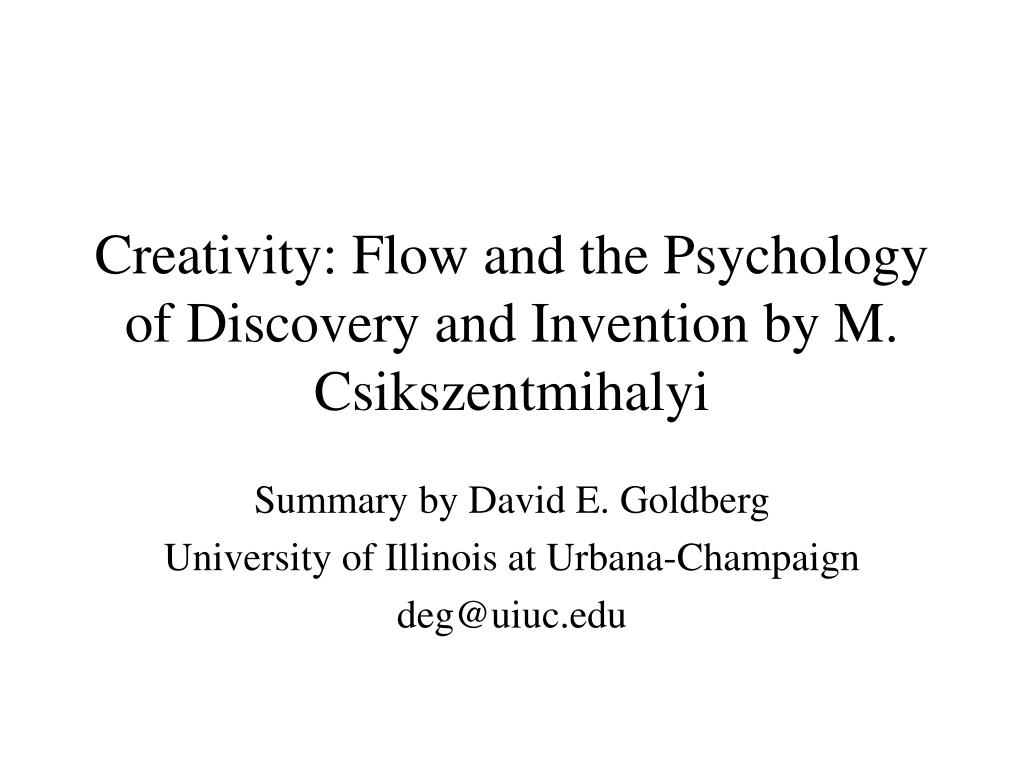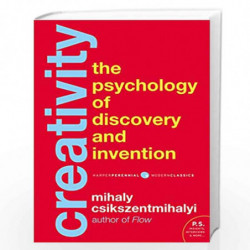

This, frankly, was also fairly hard work with little concrete scientific analysis provided.Ī final section, protestingly (as Csiksgentmihalyi doesn't want this to be a self-improvement book particularly) adds ways to enhance personal creativity. We then move on to 'domains of creativity', looking for differences and similarities between, for instance, the 'domain of the word' and 'the domain of life'. I find this kind of thing somewhat tedious to read, as it doesn't really add much to the discussion. The next part of the book takes us through the creative lives of his interviewees. So, for instance, he suggests that Bach's work only became creative once it was recognised as great after a couple of centuries of being dismissed. Csiksgentmihalyi's argument is that without the field's recognition, the creativity isn't 'real'.

Perhaps the most interesting thing in this section is the suggestion that creativity can never be solely about the creative individual. Csiksgentmihalyi tells us that we need three components: an existing domain - an area of knowledge that that the creative individual knows, the act by the individual, which often involves coming at some aspect of the domain in a novel way, and the field, which are the creative person's peers. We are first introduced the the creative process, through a little bit about the nature of creativity, the creativity personality, how they go about the creative act and the inevitable link in with the concept of 'flow'. There are a number of problems with this approach - would Einstein have said yes, for instance? But there is no doubt that the popular psychologist is able to winkle out a few interesting thoughts on the matter. The way this has been achieved is primarily to identify a large number of people that Csiksgentmihalyi considered highly creative and to ask them if they will be interviewed. With a name that will always be associated with the concept of 'flow', Mihaly Csiksgentmihalyi was a likely choice for a book giving a scientific view of creativity.


 0 kommentar(er)
0 kommentar(er)
